While banner ads are easily managed with special extensions, dealing with various subscription requests, mouse button blocks, and auto-playing videos can be more challenging.
Many websites cross the line in trying to grab a visitor's attention. While banner ads are easily managed with special extensions, dealing with various subscription requests, mouse button blocks, and auto-playing videos can be more challenging.
What to Do?
macOS and iOS users can try the StopTheMadness Pro app, which allows blocking any annoying elements on all visited sites.
Installation and Setup
Frankly, I don’t understand why the utility only works on Apple operating systems since it’s essentially a browser extension, not a full-fledged application.
Upon the first launch of StopTheMadness Pro, you need to select which browsers to activate the blocking in. Supported browsers include Safari, Firefox, Google Chrome, and similar browsers.
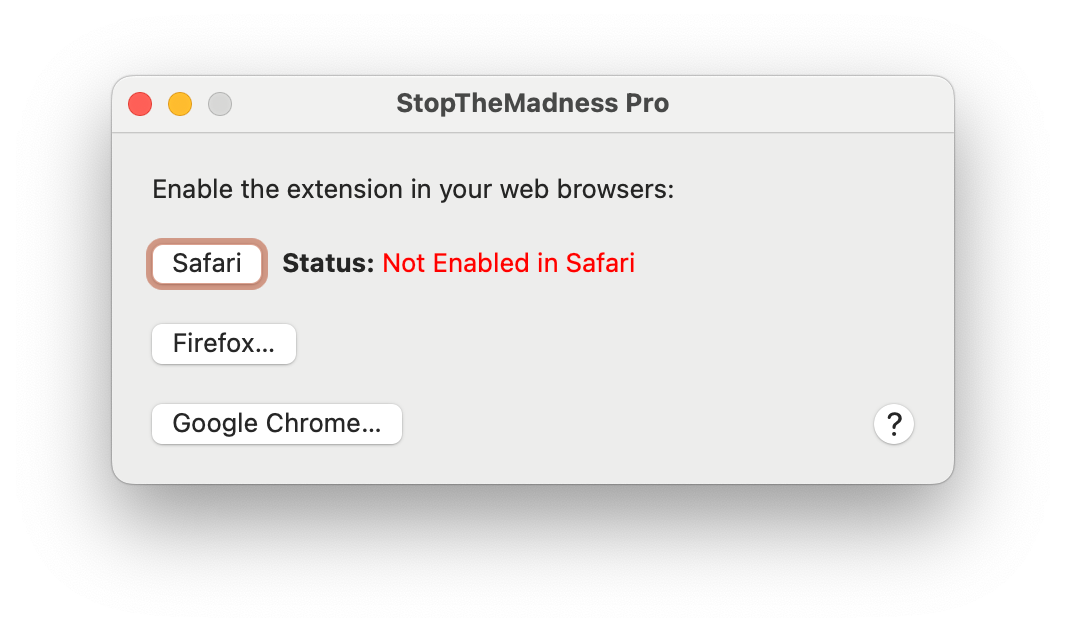
Then you need to add the extension to the chosen browser. The installation process varies slightly for each browser. For instance, in Google Chrome, you will need to enable developer mode.
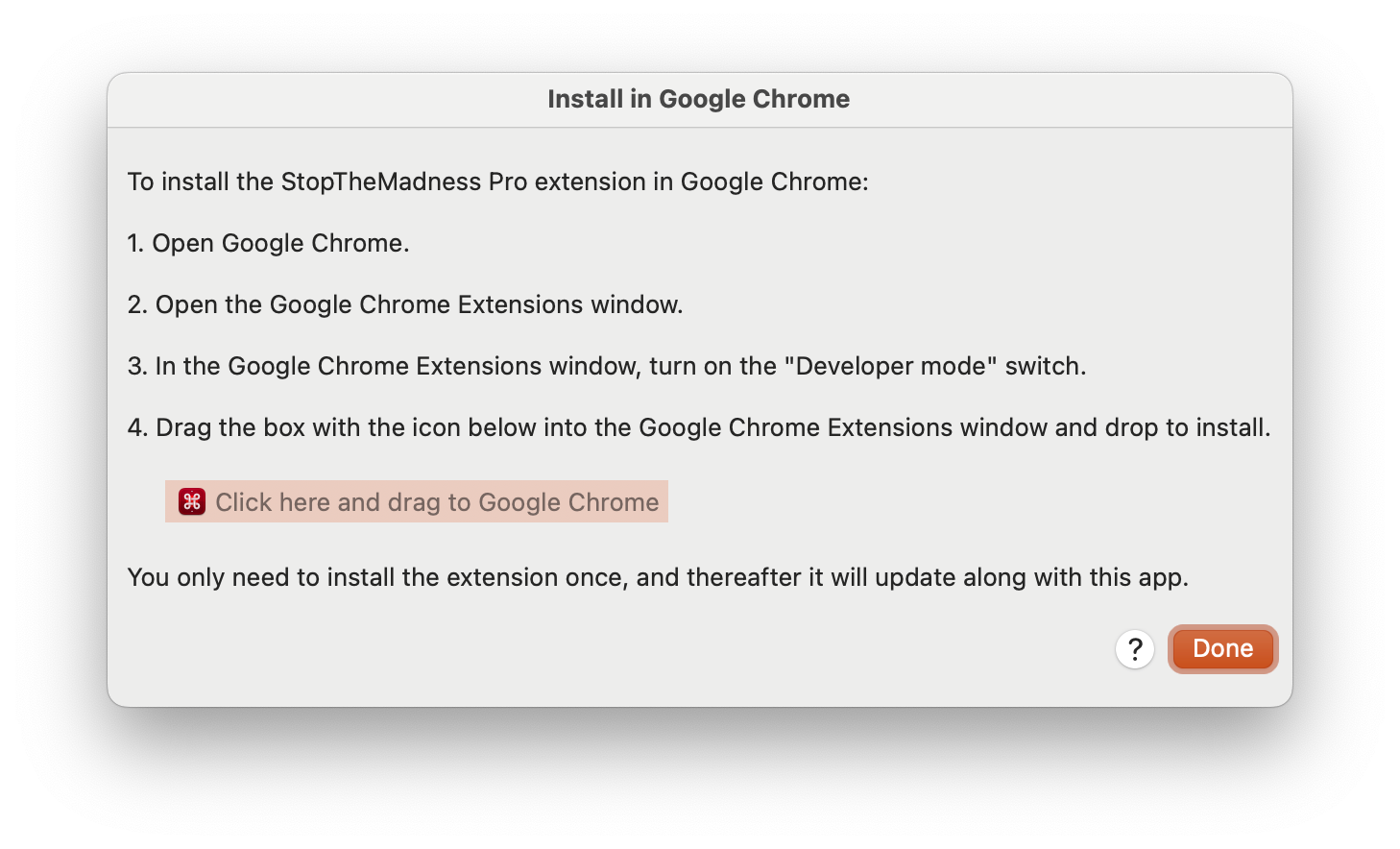
Overall, the installation process is very simple and takes just about two minutes. After that, you can forget about the desktop version. All further settings are done within the installed extension.
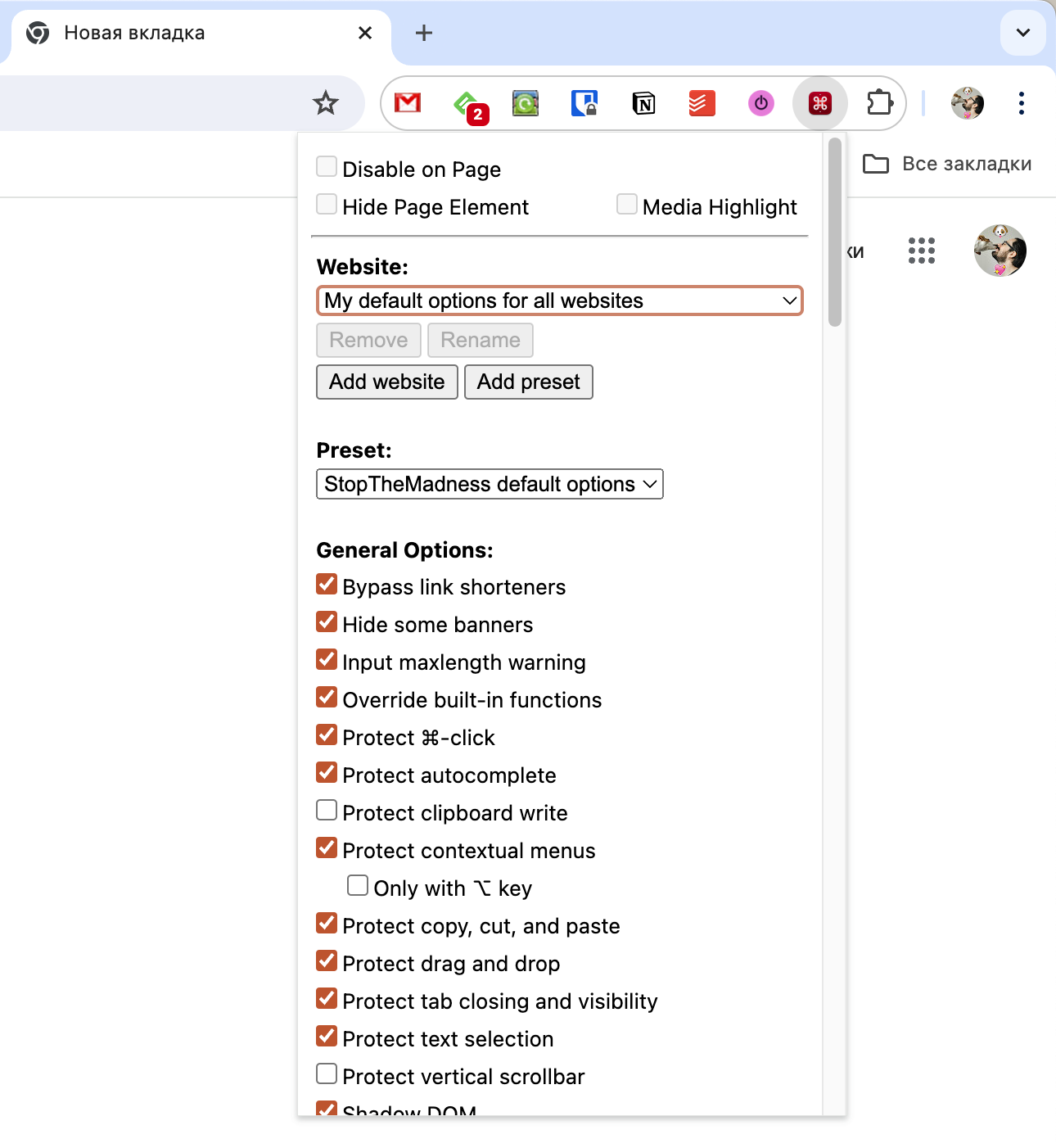
On mobile, the installation and operation logic is similar, but the extension is only available for Safari.
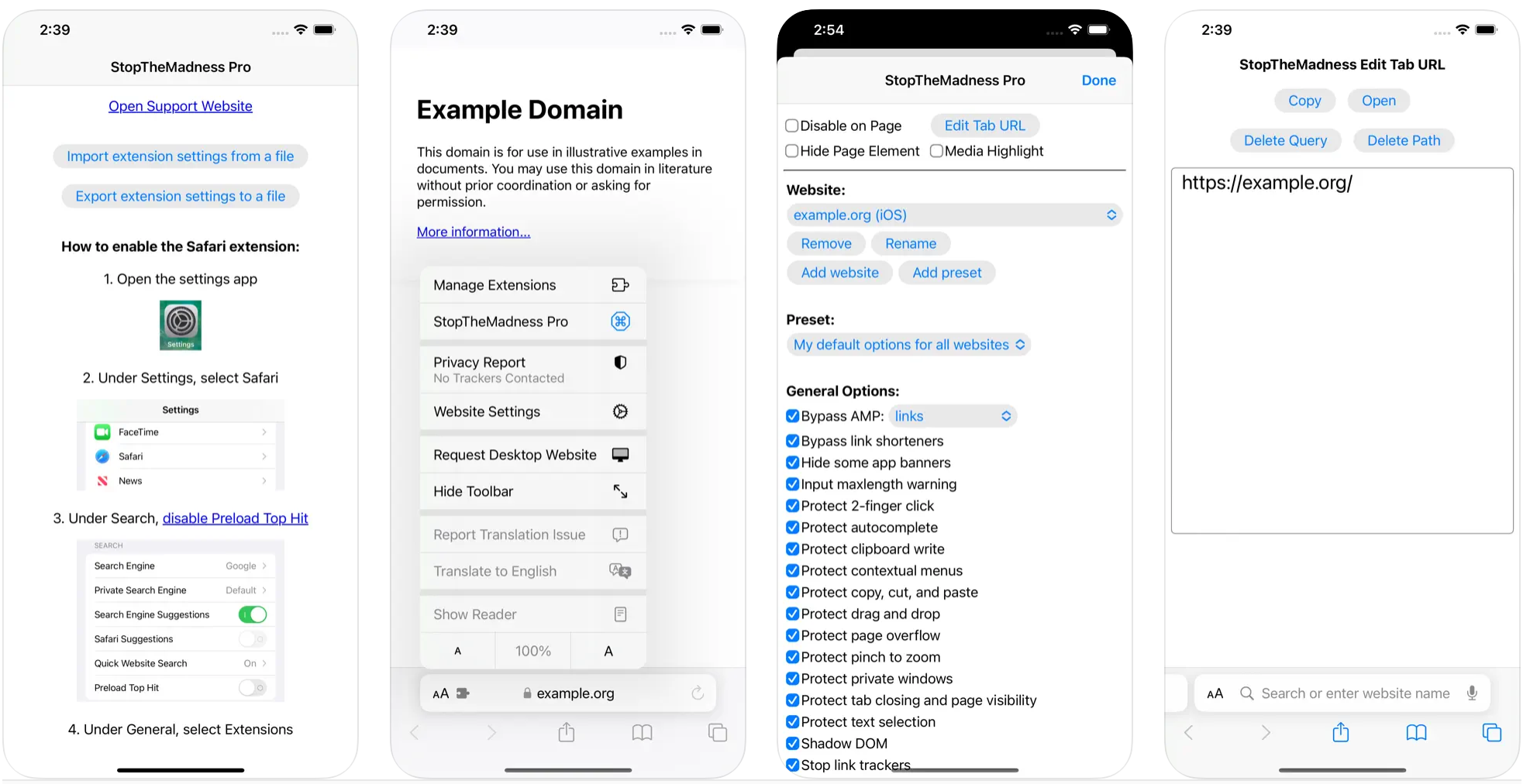
What Elements Can Be Blocked
Starting with the initial settings of StopTheMadness Pro, you can set various parameters for the extension’s operation on websites or create several general presets.
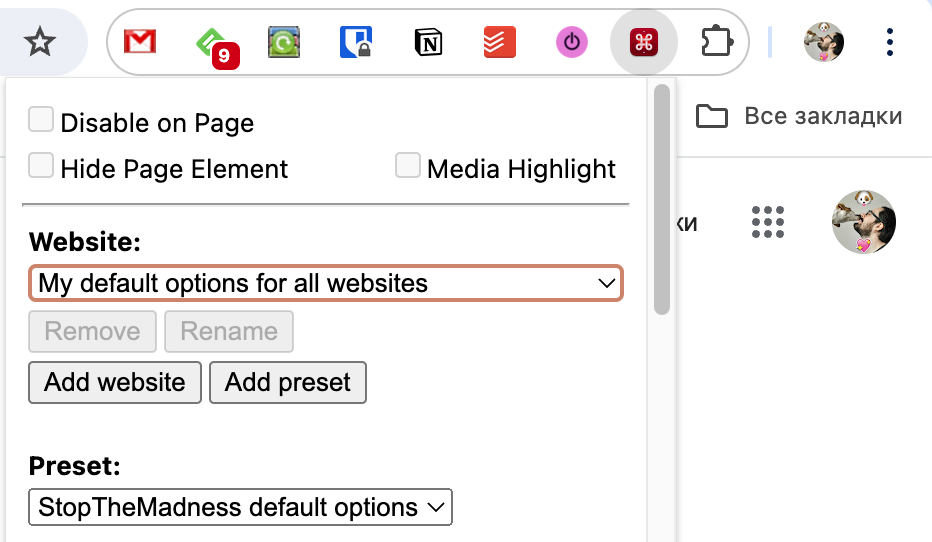
Additionally, by pressing "Hide Page Element," you can select any element on the visited page and hide it. However, selecting the desired block is quite inconvenient, and initially, it’s unclear what’s happening.
For example, in Adblock Plus, the elements to be blocked are clearly highlighted, making it easy to understand what exactly will be blocked.
Another strangely working option is Media Highlight. I didn’t find a description of what this setting does on the developer's site. From what I understood, all images and videos on the site should be highlighted. But in practice, you will just see an empty page without any information.
I checked the behavior in both Google Chrome and Safari. The result was the same everywhere.
All settings can be synchronized between devices via iCloud.
General Settings
StopTheMadness Pro offers a plethora of detailed settings for website display. Some of them may be confusing to the average user, to say the least. Moreover, such options are enabled by default, and their descriptions are nowhere to be found.
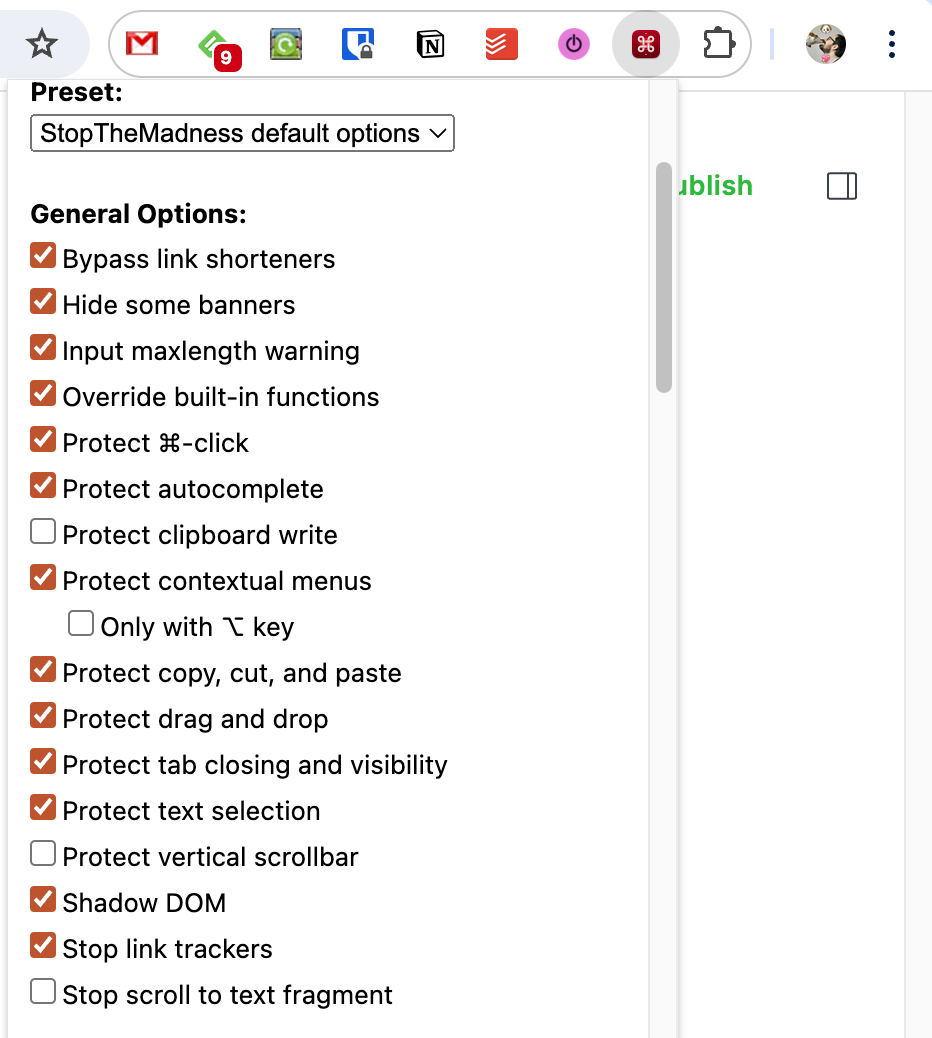
For example, Shadow DOM. In web development, this feature helps access the "shadow" DOM elements of site components. Does that make it clearer what happens when it’s activated in StopTheMadness Pro? It didn’t make it clear for me either.
Other settings are more or less understandable, though there are still questions about some of them, like Input maxlength warning. Among the useful options are:
- Bypassing link shorteners;
- Enabling right-click, copy/paste, text selection, and auto-fill;
- Blocking trackers in links.
Working with Audio and Video
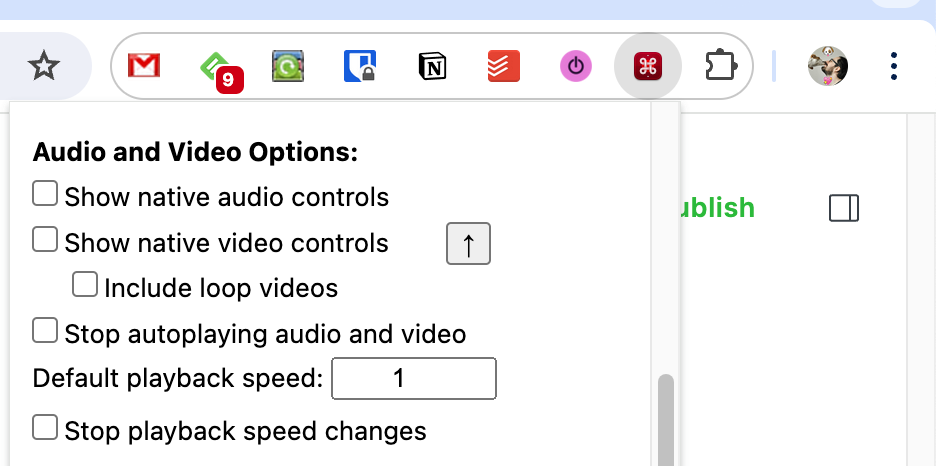
In this section, everything is much simpler, and there aren’t many options. You can:
- Activate native video and audio controls;
- Disable autoplay and change the default speed;
- Prevent playback speed changes.
Working with YouTube
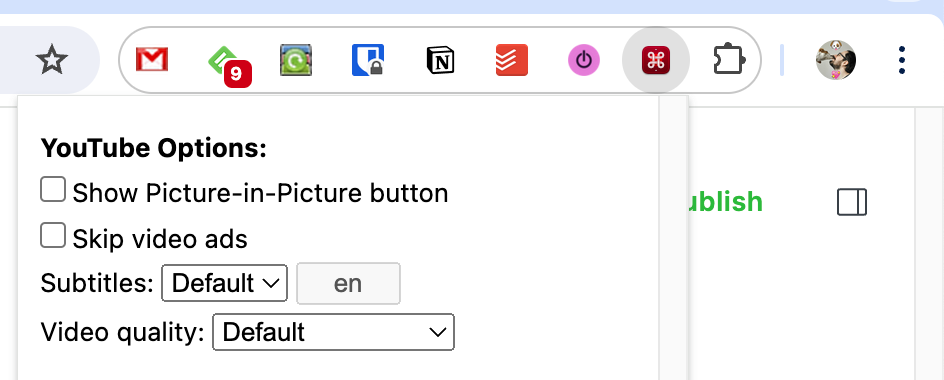
Despite the previous section, YouTube has its own set of features, albeit very simple:
- Displaying the "Picture-in-Picture" button;
- Skipping ads;
- Selecting subtitles and video quality by default.
Dangerous Options
The next section, with the scary name Dangerous Options, can be considered experimental. Enabling these settings is useful to very few people, but it significantly increases the likelihood of breaking the website's functionality.
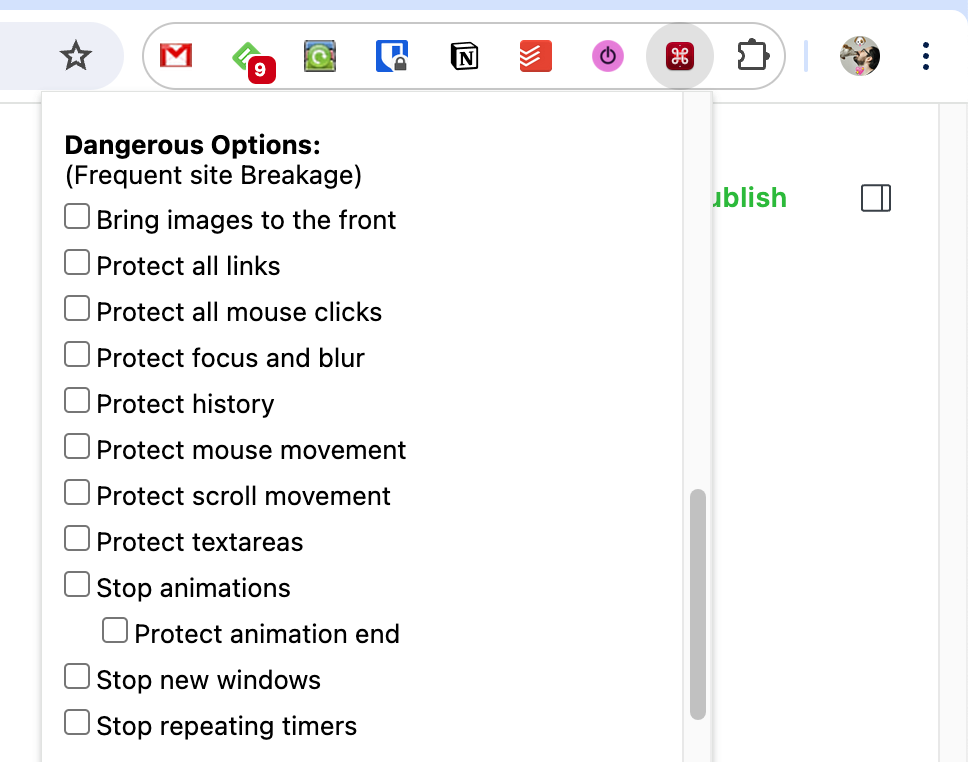
However, there are sites that like to take control, display various timers and animations, and open new windows. You can prevent such things in this section.
Keyboard Functions
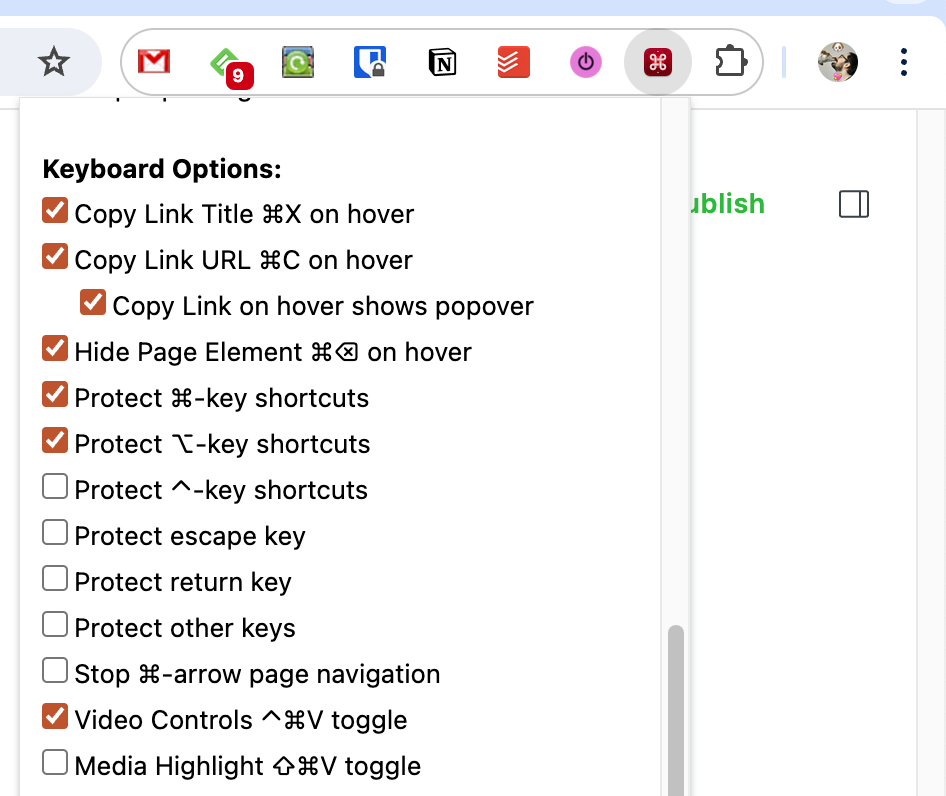
This set of settings allows activating some useful features for keyboard work. For example, copying text and links when hovering the cursor, hiding elements, and more.
Working with Tabs
I don’t like how modern websites handle new tabs and link clicks. I even installed a special extension for this, to open tabs in the order I want.
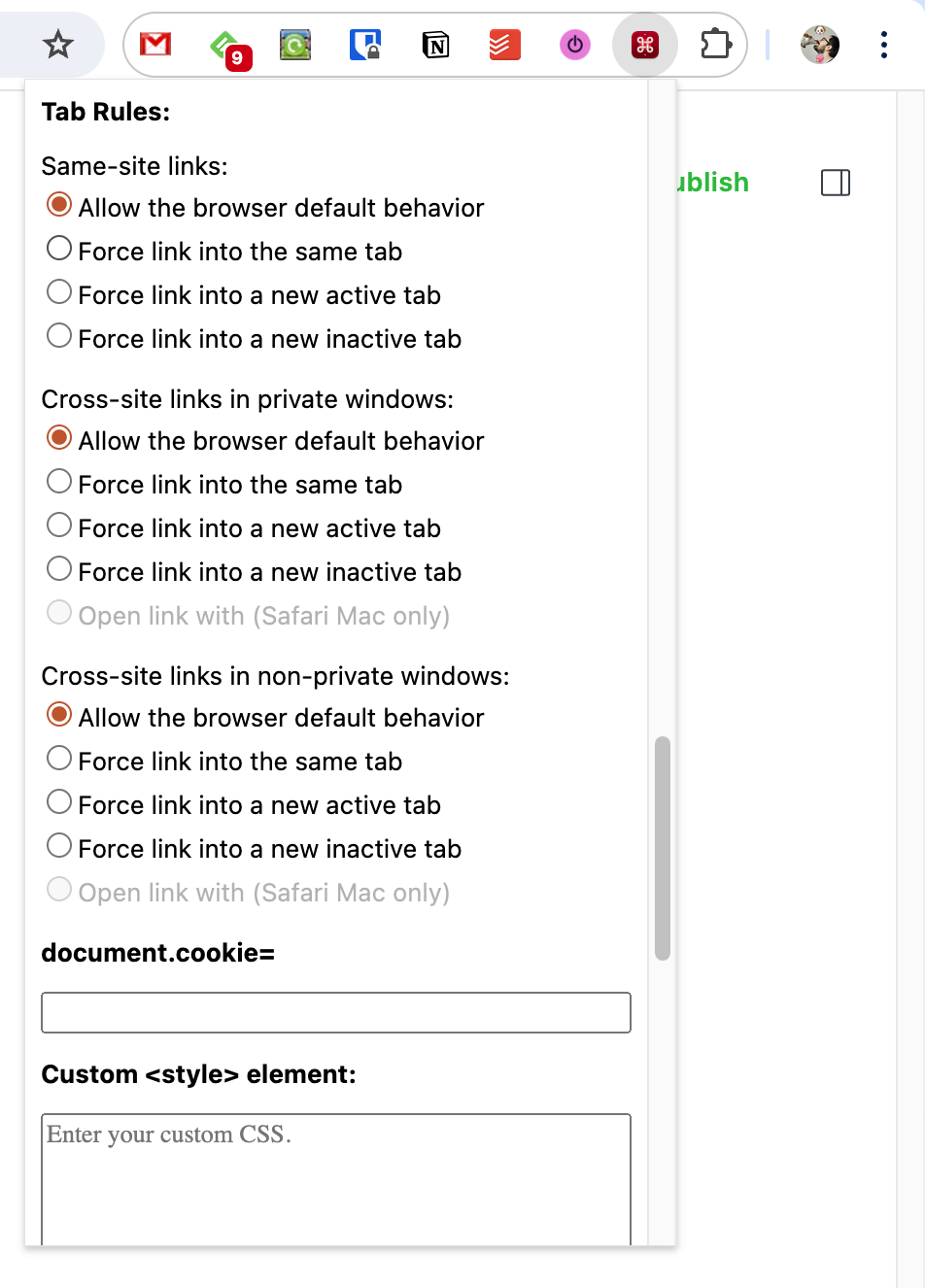
StopTheMadness Pro offers even more flexible settings. You can specify where to open links: in the current tab, in a new background tab, or in a new active tab. This setting is available separately for links within the domain and for external links.
Additionally, you can set custom cookies and CSS for opening a new tab.
Cost
StopTheMadness Pro cannot be tried for free. You will have to pay, but the payment is one-time.
It’s also important not to confuse StopTheMadness Pro with StopTheMadness. The latter is an older version of the app, which is still available for purchase for some reason.
Conclusions
If you understand all the settings of StopTheMadness Pro, you can customize the behavior of all annoying elements according to your needs. The number of options justifies the cost.
Of course, there are certain downsides. For me, the main ones are the need to install a desktop application and the lack of setting descriptions.
For others, I think the main issue is the practical necessity of installing StopTheMadness Pro. If you are genuinely annoyed by practically everything, then it makes sense. Otherwise, you can install separate extensions to achieve the same result.
